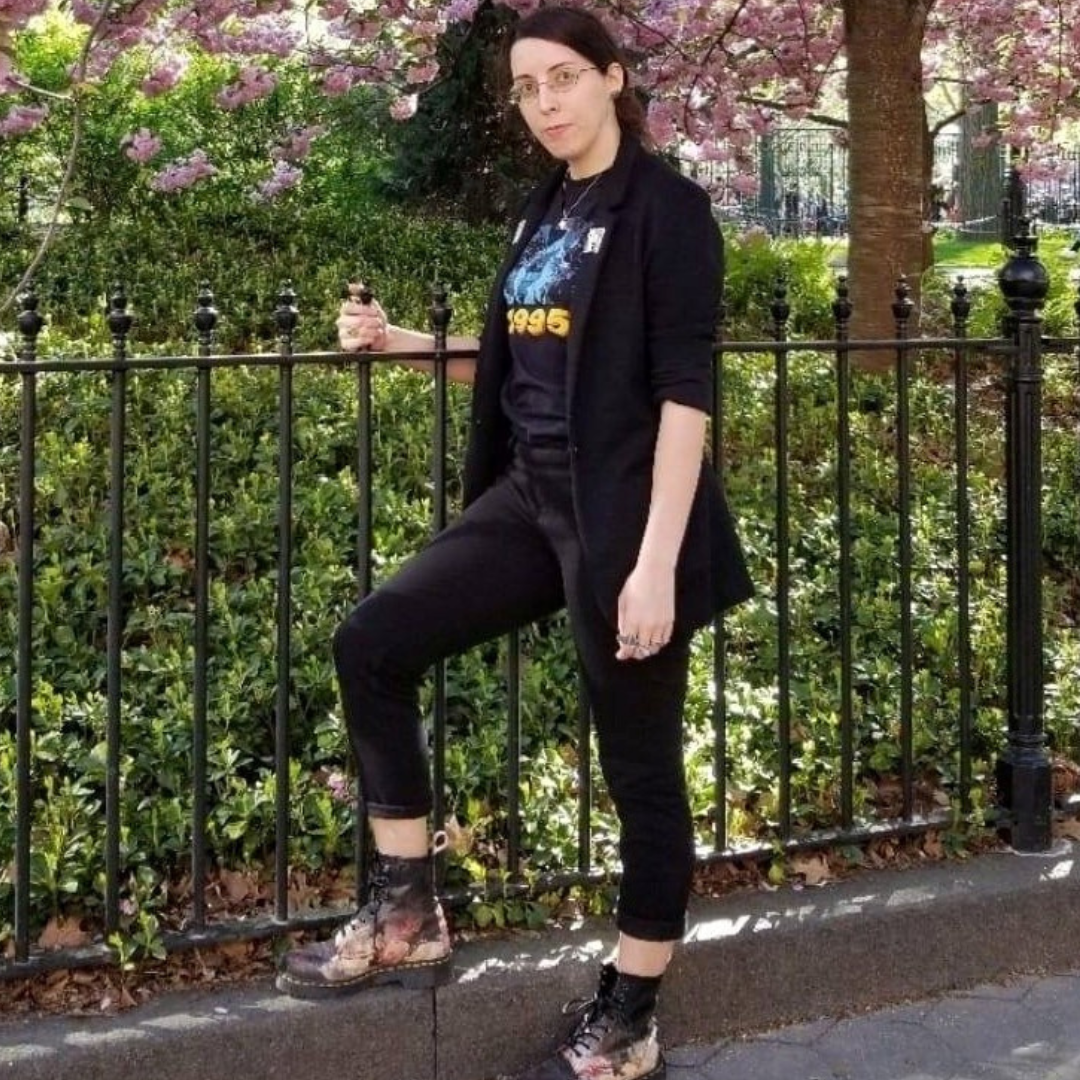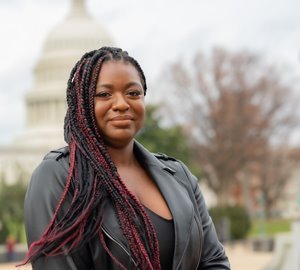Understanding Arts Service Organizations in a Changing Arts Ecosystem
A research study which aims to understand the role, impact, and ongoing evolution of
arts service organizations in the United States today.
WHY?
Arts service organizations (ASOs) play a critical role in nourishing the United States arts ecosystem and have been doing so for generations.
Primarily serving individual arts workers, including artists and collectives, as well as artmaking entities and the general public, ASOs frequently provide benefits to under-resourced artists and groups through capacity building, networking, advocacy, grantmaking, professional development, and/or industry research. As the arts ecosystem contends with the ongoing impact of the pandemic and a volatile societal, political, and economic environment that is driving a new crisis, it has become necessary for individuals and entities across the arts industry to better organize and understand their role in contributing to and repairing the current conditions in order to mitigate future losses and to care for the future of the arts and its people.
As members of this ecosystem, it is vital to have a better understanding of ASOs’ role, impact, and ongoing evolution.
HOW & WHEN?
Process & Activities
This research focuses on the ways in which arts service manifests within the framework of art as “industry,” and more specifically within the nonprofit industrial complex. An iterative research approach that includes qualitative and quantitative data collection efforts will most effectively guide the research process, with activities organized into four research phases, each with a corresponding reporting and dissemination process. Each phase of the research aims to address a series of key research questions, undertake a series of activities and provide a set of deliverables, including public convening and interim publications of findings.
-
May 2023 - October 2024
Preparation & Background Research
Establishment of Advisory Cohort & Subject Typology
Development of Research Methodology, Tools & Study Universe
-
January - December 2025
National Quantitative Data Collection
Research Subject Engagement
-
January - October 2026
Regional Qualitative Data Collection
Research Subject Engagement
-
Fall 2025 - Spring 2027
Development of Recommendations for future of ASOs
Dissemination of Final Report + Findings
DIVE DEEPER
-
This study is anchored in ADC Consulting’s research values and principles. In practice, the application of these values across Phase 1 of the research process included:
Establishing a paid advisory cohort of members of the arts and cultural community. This includes a diverse group of individuals across lived experience, expertise, and geography, and who actively engage in the work of ASOs in different capacities.
Acknowledging the ongoing impact of the pandemic. This includes its impact on the research process, the people who are a part of the process, and the cultural sector.
Acknowledging the ways in which capitalism, white supremacy, war, genocide, economic precarity, and climate change continue to impact the arts and culture sector and, therefore, the outcome of this study. This includes the roles members of the arts ecosystem including ASO’s, research leads, and research participants, play in benefitting from, exacerbating, upholding and/or being oppressed by these systems and their outcomes.
Engaging in a multi-phase research process that is iterative and considers multiple modalities, perspectives, and adapts to learning and contemporary contexts. This includes, adjusting timelines as needed, and pausing where necessary to address potential harms, new learnings, or additional approaches.
Exhausting all possible resources to ensure a large cross-section of members of the community are able to contribute to the research process. This includes sharing their stories, ideas, and areas of expertise through interviews and focus groups, and through that process, seeking their consent, compensating them for their time, and communicating transparently about the purpose and use of their information and/or contributions.
Providing a variety of accessible opportunities for participation in the data collection processes. This includes providing written and oral forms of digital data collection alongside closed captioning, ASL interpretation and/or other types of accommodations so research participants can engage in methods that best align with their access needs, time, and capacity.
Creating tools for the public to interact with, download, and analyze/interpret the data themselves. This includes providing access to normalized/clean data sets, and using a platform that allows for user-generated versions of the data to promote transparency and encourage additional analysis of the data.
Understanding that research alone cannot solve all of the problems it aims to observe, explore, or influence, including acknowledging our limitations as humans and researchers. This means working with institutions and individuals to spread the word of the study and to advocate for the application of its findings in ways that advance collective goals of liberation and well-being for arts workers, arts entities, and their communities.
-
Understanding Arts Service Organizations in a Changing Arts Ecosystem intends to provide updated baseline data on three aspects of ASOs operating in the United States:
Typology Framework — to better define ASOs by understanding their key characteristics, service roster, constituencies, and support structure.
History & Impact — to more accurately tell the story of their impetus, operating environment, role, and ongoing impact in the arts ecosystem; and
Evolution — to provide insights into the paths they can take to move towards sustainability, better serve their constituencies, and contribute to building a more equitable and just arts ecosystem.
It is designed to benefit the arts sector, with a specific focus on ASOs and the individuals and entities who impact and drive their work, including:
ASO workers — as the individuals tasked with carrying the work of ASOs forward;
Funders of ASOs (private and public) and policy makers — as the individuals and entities whose decisions impact the resourcing of ASOs and their ability to remain operational;
Arts workers and organizations — as the intended beneficiaries of the work ASOs do; and
The arts sector — to provide greater visibility and information on the work ASOs do and how they might interact with them.
-
As the first component of this multi-phase study, Phase 1 Background Research focused on seeking and analyzing existing data on ASOs in order to consider how this study could update, complement, and/or expand existing research. To guide this work, a series of research questions were established:
What are ASOs? How do we define them and/or distinguish them from other arts entities or service entities?
What is the history of ASOs?
How have they evolved over time in response to shifts in the arts ecosystem and the changing needs of individual arts workers and arts entities?
What is the ASO typology framework?
What information or data already exists about ASOs, and what new data do we need to collect to better understand them?
-
Phase 1 of this study took place between May 2023 - October 2024. Three additional phases have been identified in order to gather primary data. As the arts ecosystem continues to rapidly evolve, the methodologies, processes, and types of data collected may change to respond to new learnings, organizing and collaboration efforts, and availability of resources. Resources to fund future phases of this project have not yet been secured and are in process of identification. For a full outline of future research phases download the research overview.
WHAT’S NEW?
Phase 1 Background Research Report & Executive Summary
Led by cultural strategist Alejandra Duque Cifuentes and Senior Research and Planning Consultant, Carrie Blake of ADC Consulting, in collaboration with an Advisory Cohort of arts workers, this multi-phase research project began in May 2023 with background research to understand what is already known about ASOs and ground the process in the experiences and perspectives of ASOs, their workers, partners, funders, and beneficiaries.
Each phase of the research aims to address a series of key research questions, undertake various activities, and provide a set of deliverables, including public convening and interim publications of findings as outlined in the ADC Consulting ASO Research Overview. This report provides an overview of findings from Phase 1 Background Research, which concluded in October 2024, and sets the stage for future phases of this research.
Resources & Tools
-
Phase 1 Background Research Release Event
On Friday, May 31, 2024, ADC Consulting and colleagues presented the findings of Phase 1 Background Research through a digital research release event. The event also unpacked the learnings, challenges, and focus areas for the next phase of research— including the release of the National ASO List & Data Tool which acts as an open data resource for the sector.
-
National ASO List and Data Tool
Published on May 31, 2024, this tool includes details on 4,860 arts service entities that were operational in the United States and its territories from 2018-2022.
-
Raw Data
While filtered data can be downloaded directly from the data tool, users can also download the raw data through the Google sheet linked below.
-
Phase 1 Data Tool Correction Form
If you represent an entity included in the tool you can submit a data correction request by completing the form linked below.
-
ASO Research Interest Form
If your entity is not found within this dataset and you would like to be considered in subsequent phases of this research project, please complete the form linked below.
Get Involved
Read past newsletters:
WHO?
Meet the Team
This project was made possible by the collaboration, dedication, and support of many individuals. Primary research activities were be led by Alejandra Duque Cifuentes of ADC Consulting, in collaboration with Senior Research and Planning Consultant Carrie Blake, and a team of research and administrative assistants.
-

Alejandra Duque Cifuentes
Project Lead
-

Carrie Blake
Research Consultant
-

Maleni Palacios Delgado
Administrative Assistant
-

Izzy Dow
Research Assistant
-

Jessica McFarlane
Research Assistant
-

Katherine Mostek
Research Assistant
-

Leonardo Figueiredo
Data Analyst
-

Satsu Holmes
Research Assistant
-

Tara O'con
Research Assistant
WHO?
ASO Research Advisory Cohort
To ground the research in a diversity of perspectives, prioritizing the experiences of those working within and/or who are impacted by ASOs, lead researchers worked alongside an Advisory Cohort of fourteen ASO leaders and experts. The Cohort was engaged and compensated for participation in Phase 1 Background Research to help guide the development of the research methodology and provide feedback on every aspect of the study.
-

Caitlin Strokosch
President & CEO,
National Performance
Network -

Corinna Schulenburg
Director of Communications
& Research, Theatre
Communications Group -

Daniel Phoenix Singh
Artistic Director,
Dakshina/Daniel Phoenix
Singh Dance Company -

David Blasher
Executive Director,
The MAP Fund -

Eliza Tudor
Executive Director,
Nevada County
Arts Council -

Joy Young
VP of Programs,
South Arts -

Melissa Ford Gradel
Executive Director,
Poets & Writers -

Dr. Natasha R. Moreland Spears
Co-Executive Director,
The International Association
of Blacks in Dance -

Quanice Floyd
Executive Director,
National Guild for
Community Arts Education -

Roberto Bedoya
Cultural Affairs Manager,
City of Oakland, VA -

Ryan Stubbs
Senior Director of Research,
National Assembly of
State Arts Agencies -

Theresa Hubbard
CEO,
Fractured Atlas -

Vicky Holt Takamine
Founder,
PA’I Foundation -

Wendy Levy
Executive Director,
Alliance for Media
Arts & Culture
ADC Consulting is a fiscally sponsored project of IndieSpace. The first phase of Understanding Arts Service Organizations in a Changing Arts Ecosystem is made possible with the generous support of the Mellon Foundation. ADC Consulting is a grantee of the Mellon Foundation. The research, its process, and outcomes is not a commissioned project of the foundation and does not represent its views.









